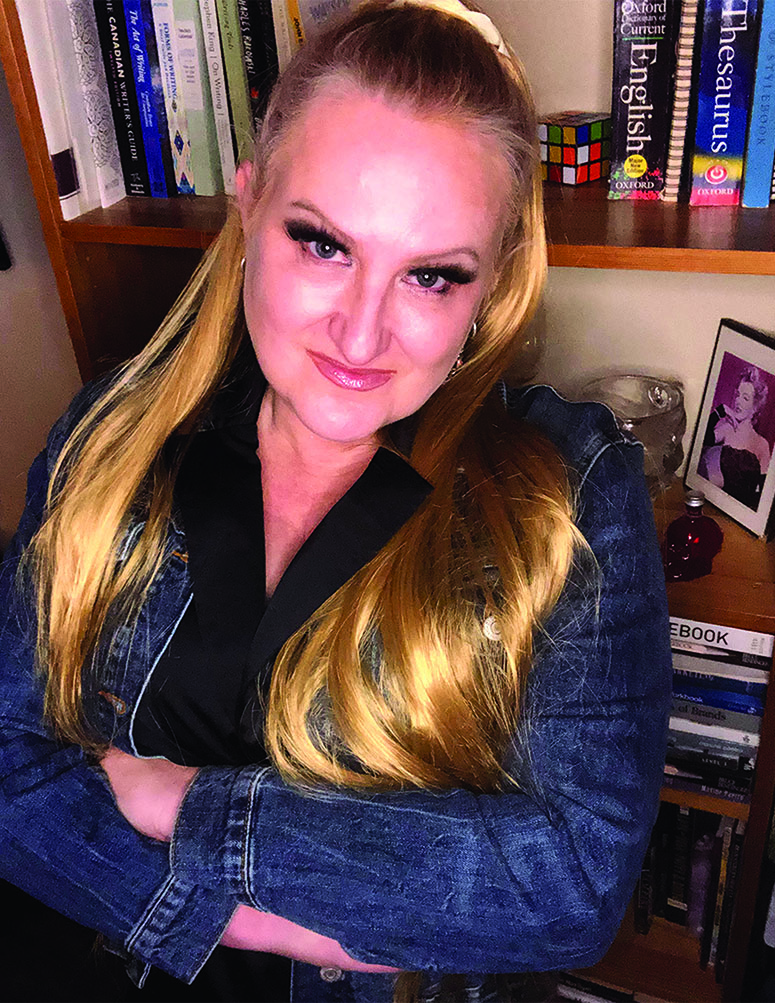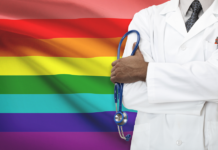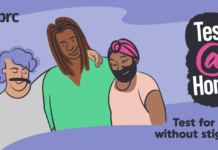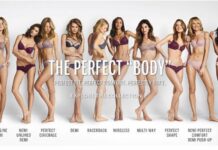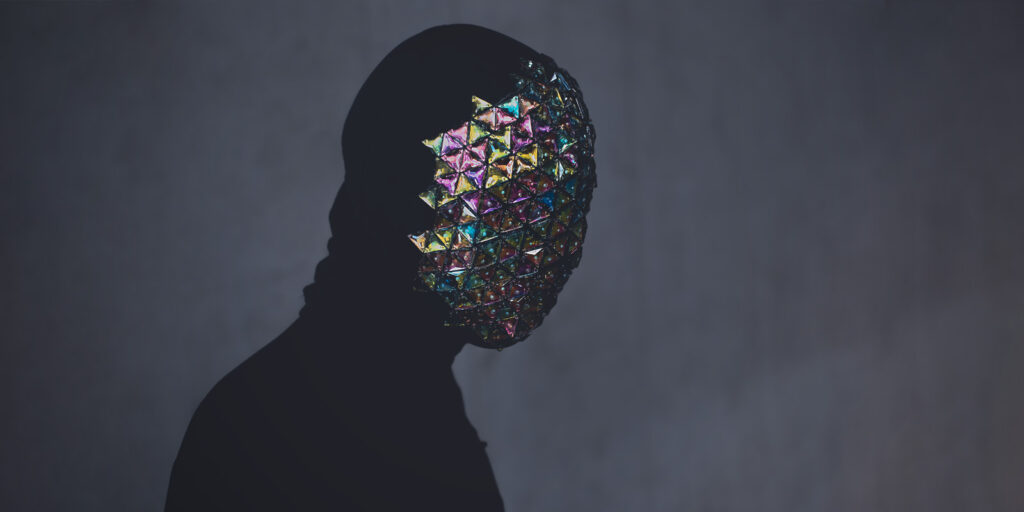
By Raquel Richards
It’s the middle of the night, and you’re cozy, asleep in bed. All of a sudden, you are woken up by a loud thumping noise. Two large male figures are silhouetted by the light outside your bedroom. They barge into your room, whip the covers off you, grab your arms, and fiercely drag you out of bed. Your heels indent lines in the plush carpet. Your arms feel like they will rip out of their sockets. As you’re hauled away, you see your parents shaking their heads, holding each other as heavy tears drench their faces. ‘Why is this happening?’, you think to yourself through your screams echoing down the stairs and out the door into a dark van.
This was the beginning of what Paris Hilton and others like her will never be able to turn back from — trauma.
We all wear many masks every day: work mask, son/daughter mask, parent mask, and so on.
The mask a trauma survivor wears — like that of a Paris Hilton, dragged out of her home in the middle of the night as her parents watched — is anything but temporary. The mask we wear becomes normal. We wear it day and night; for years.
A trauma survivour’s mask becomes their protective shield. Many of us unconsciously wear a mask because it takes away the abuse we endured. Trauma survivours desperately want to portray anything but the sad, hurt, tired, and scared person under their mask.
Paris Hilton, in her 2020 documentary, “This is Paris” is a perfect example of this type of trauma. How you perceive Paris is because of how she wants you to receive her. She put on her mask after she left Provo Canyon boarding school – where her parents sent her to “smarten up” – when she was a teen. Now at 39, she has decided to take off her mask to reveal her true self. After filming her doc for a year, it became personally important for her to unmask and reveal her truth.
It was through an on-camera self-discovery journey that she noticed how heavy her mask was and how much work it was to wear every day. It became so overbearing she realized people only viewed her as this “Simple Life” baby-talking, bubble-headed, sex tape, DUI girl, when underneath she is a strong woman who works hard for everything she has built.
My experience of wearing a mask took a lot of energy, emotion, and presentation.
It became my lifestyle. According to the Canadian Association for Mental Health (CAMH), children who are abused, as I was, may not be able to understand what is happening to them is wrong. Yet, their bodies may register the danger and as adults, their bodies still hold the memories of abuse.
At 15, Paris’ trauma came from the abuse she endured while at boarding schools for teens with behavioural problems in the late 1990s. Her parents, Rick and Kathy Hilton chose to send her to the program. Paris explains that until making the documentary, they were not privy to the treatment she endured. She was forced into solitary confinement, forced to take unknown drugs which left her numb and tired, and she endured physical and emotional abuse.
I recall being threatened to I’d sent to boarding school when I was a teen. Thankfully, it never happened.
However, my father was verbally and physically abusive. When I was 14, I came home from school for lunch where my father had heated tomato soup for me. I took a few sips before he got angry.
“The dishes aren’t done!” A hard, wicked kick to my side sent me flying out of my chair, onto the floor. The soup flew into the air, splashed onto the table, and the bowl broke when it crashed to the ground.
I curled up into a ball on the floor as my father punched my head and kicked me like a soccer ball, into the sunroom. When he was done, he left me lying there, coiled in the fetal position and in pain. I cried quietly.
Eventually I slowly stood up, picked up my backpack and made my way back to school, feeling ashamed. That afternoon, I had swimming class, but I couldn’t swim because I was too dizzy from the blows to my head. I lied to the teacher and said I wasn’t feeling well. As I sat poolside watching my classmates joyfully swim, tears streamed down my face. Swim class was one of my favourites.
When I was 17, my father roared, “I’m tired of raising you! Be someone else’s problem! I don’t care where you go just as long as you leave when you’re 18!”
Better put on my mask.
To this day, some of my family don’t believe the abuse I endured.
Probably like Paris’ family and other families who find out about the trauma after it happened, it’s difficult for them to accept the abuse, when they know they could have done something but chose not to.
It’s easier to look the other way and pretend ignorance.
Wearing a mask allows the survivor to be anyone they want to be. According to CAMH, traumatic childhood events can change the way a person’s brain and body works. Trauma can affect emotions, memory, thinking, and the sense of self. It can also affect relationships.
In “This Is Paris,” we see Paris preparing to play the biggest festival of her DJ career, Tomorrowland. Her then-boyfriend, Aleks Novakovic, is drunk and belligerent. He drops her laptop, manhandles her, and demands she pays attention to him. No one intervenes. Paris, unlike any Paris have seen before, angrily tells him to leave her alone and to leave the festival. She tells security and her team to cut his admission bracelets and get him off the festival grounds.
It’s in this scene we realize how alone she is, but also how strong she is. “I feel that I’ve grown up so much, especially in the past year, doing this film. I just had so many realizations and realized who I truly am and why I am the way I am,” she told Variety.
According to CAMH, trauma can cause eating disorders, misuse of alcohol and drugs, or harm themselves. These behaviours may help to cope for a while, but they often lead to isolation, depression, and can increase anxiety and sleeping problems.
In the documentary, we learn that Paris suffers from insomnia and has constant nightmares of men taking her away. This is a struggle she has endured since being at Provo. I suffer from insomnia as well. I believe my nightmares are due to the abuse I endured as a child, and from being assaulted with a weapon in 2019. Paris’ nightmares are of her being taken away at night. Mine consist of being attacked and escaping.
The brain is a powerful organ, and it doesn’t forget trauma. It’s good at hiding awful memories, which is when the mask slowly creeps around the hurt and protects the survivor from the monsters they believe are creeping around them.
For Paris, me, maybe you, or someone you know, trauma has no bias.
Trauma hurts. It really fucking hurts. The sufferer pays the emotional price for someone else’s actions, but one thing for certain is that the trauma isn’t the fault of the sufferer.
I wore a mask for most of my life. When I decided to take it off, the uncomfortableness of showing my true self was frightening. I was, and still am at times, a little uneasy of showing my flaws, imperfections, and vulnerability.
As we age, we become comfortable with who we are. Like a snake, we shed our skin to reveal the shiny new us. Except we are not new, nor is our skin. It’s our spirit, confidence, and the need to be happy that gives the mask wearer the strength and confidence to take it off for good.
Cover image source

